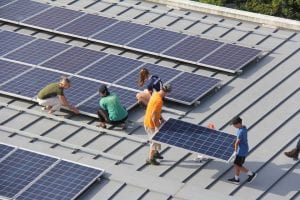2018 was a revolutionary year for technology and clean energy worldwide. Although there were some steps taken backwards, there was a lot of progress and the future seems bright. Today, we are going to look back on some of the biggest moments of 2018, and look forward to what 2019 holds in store.
Recap of technologies and advancements from 2018!
In April of 2018, Google, one of the largest companies in the market, made significant progress towards solving climate change as they offsetted all of their office and data centre electricity to wind and solar energy alternatives. Google now stands as a good role model for other big companies to follow, and will hopefully set a precedent to others that will do the same. Furthermore, Apple also switched to 100% renewable energy globally, mostly from solar energy. These moves from many large tech firms are setting a standard in the industry to do better for the environment.
Continue reading The Turn of the Year!



